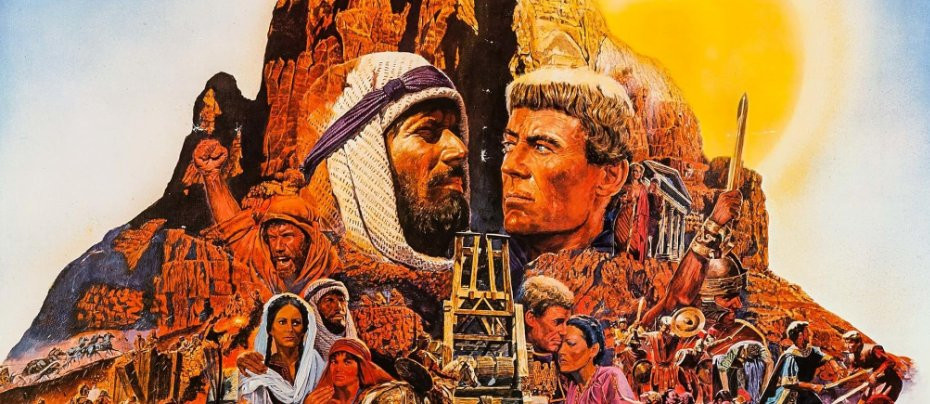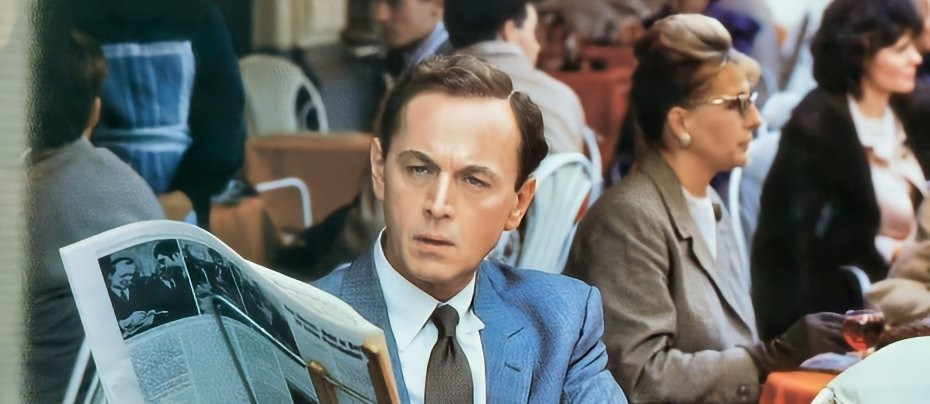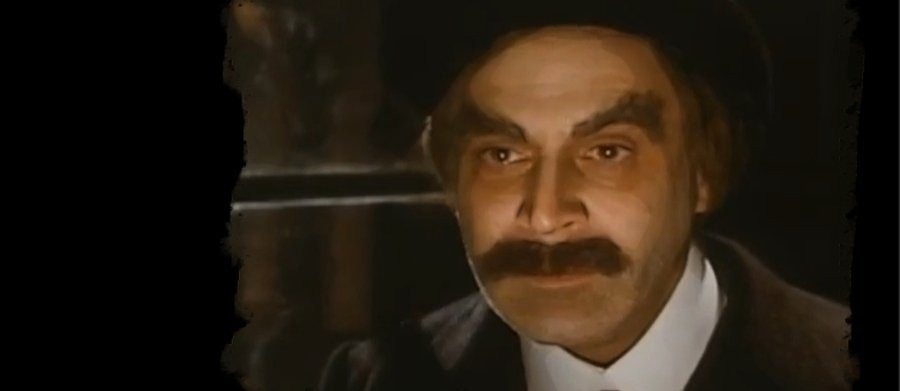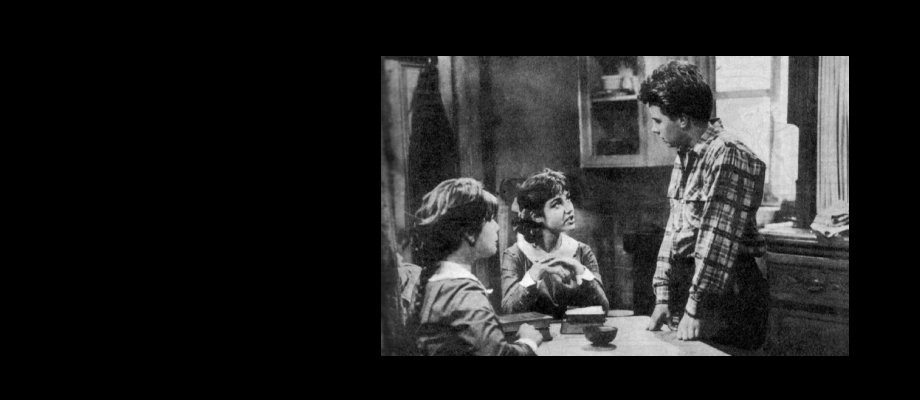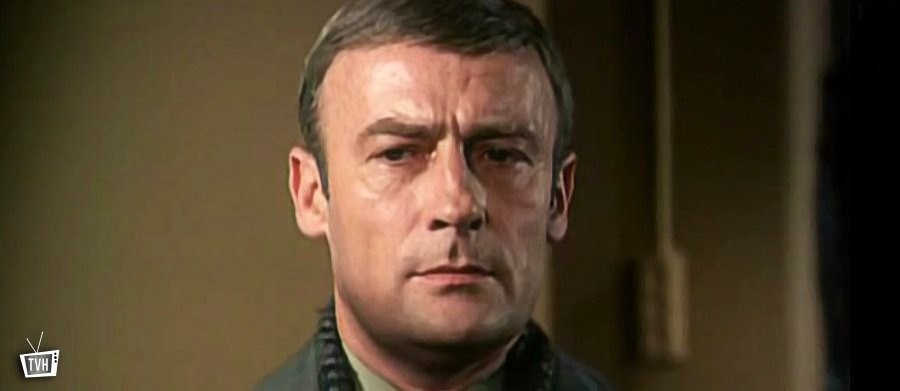
The Best of...Callan - If He Can, So Could I
Article by John Winterson Richards
The greatest strength of television as a dramatic medium is that it gives more time than a play or a feature film to explore different aspects of a complex character and his relationships. One of the earliest examples of this, the relentlessly downbeat spy drama Callan, remains to this day one of the best. Indeed, it seems in many ways ahead of its time. Over four seasons, the great Edward Woodward presented us with a comprehensive, if still tantalisingly incomplete, psychological study of the eponymous Government enforcer and licensed killer.
This presents a practical difficulty to anyone tasked with selecting the definitive or "best" episode. There is no single episode that sums up the whole thing.
In the case of Callan, an episode like 'Red Knight, White Knight' sets out the stall by presenting the character in relatively conventional terms as a hero whose tough guy exterior hides intelligence and even sensitivity. However, an episode like 'The Little Bits and Pieces of Love' turns this on its head by showing him as the opposite of a hero from the point of view of an innocent woman whom he bullies and blackmails. In 'Heir Apparent,' we see some of the anger that bubbles beneath the surface, but also more of his practical working relationship with Toby Meres, demonstrating how bickering and mutual respect are by no means incompatible. In 'Let's Kill Everybody,' 'Suddenly at Home,' and 'Charlie Says It's Goodbye,' the apparent impossibility of a man like Callan having a love life is brought home brutally. In 'The Worst Soldier I Ever Saw' we are given a glimpse of the past life that makes such a man. By contrast, 'Nice People Die at Home' shows how he retains a redeeming streak of human sympathy.

A defensible case could be made for any of the above being the "best" episode, but none of them tell the whole story. Most of them were part of the monochrome second season, in which the episodes were largely freestanding. Many Callanistas consider that is the season which had the most great episodes, even if that is not necessarily the same as saying that it was the best season. Black and white gave the season a 'film noir' quality appropriate to its style, tone, and subject matter that was lost with the change to colour in the third season. The 'noir' effect was enhanced in the earlier episodes by having Callan provide his inner thoughts in the form of a voice over reminiscent of the narrative of the classic private detectives in Hollywood films. This device was gradually phased out but, while it lasted, it gave a much needed humanity to a character who might otherwise have seemed too unsympathetic to audiences of the time, at least initially.
Yet there is no doubt that, overall, Callan improved as it went on, developing ever more sophisticated story and character arcs at a time when they were very unusual.
It is for that reason that the episode finally selected, 'If He Can, So Could I,' comes from the fourth and, as it turned out, final season, in which it played a pivotal role. Although the individual episodes were written by different writers, there was a definite plan for the season, and 'If He Can, So Could I' marks a major turning point both in the main storyline and the lives of two important regular characters.
The episode begins with secret agent David Callan struggling to cope with an unexpected promotion. At least Callan did not expect it. His elevation probably came as little surprise to any reasonably intelligent viewer who had been paying attention. That canny viewer could also have predicted that Callan would not do well in his new post.
In particular he is having trouble defining his new relationship with old colleagues. This, not the main plot about a Russian assassin, is the real drama at the heart of the episode.
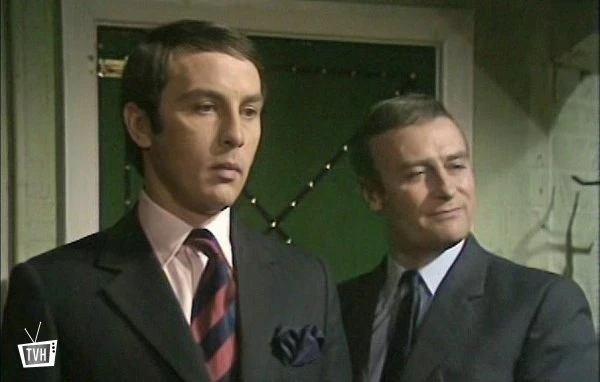
With the exception of William Squire, whose Fourth Hunter is necessarily absent from the story - things would never get so out of hand if he was there - and his predecessors, the cast is at full strength. Geoffrey Chater, as the urbane civil servant Bishop, takes over in the authority figure role in which he always excels. The magnificent Anthony Valentine has returned as Callan's old "frenemy" Meres, not long back from a season in Washington and making no secret of the fact that he would do a better job than Callan in Callan's new position. At the same time Patrick Mower is still there as James Cross, once top gun in the absence of Callan and Meres but now all too aware of his diminishing status. Clifford Rose puts in one of his welcome appearances as the sinister psychiatrist Snell. Lisa Langdon gives another of her nicely understated performances as Liz, Hunter's secretary and the person who seems to be keeping "the Section" going while all the alpha males have their emotional crises.
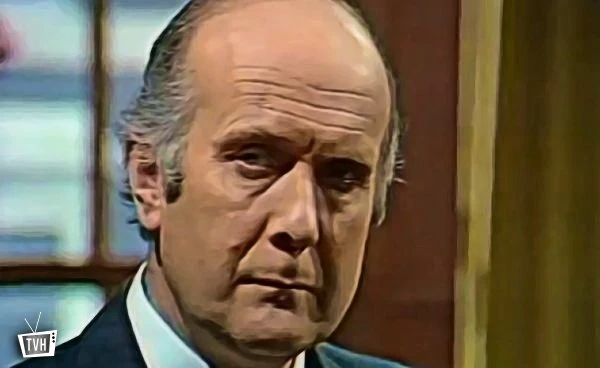
Honestly, the whole lot of them need to seek professional help - but since the only option in that regard is Snell, one can understand why they do not. There is a line about him that seems prescient given that Rose later found fame as SS Standartenfuhrer Kessler in Secret Army and the sequel named after him.
The most annoying of many disagreeable things about Snell is his assumption of an air of infallibility. The second most annoying thing about him is that it appears to be justified. He tends to be right.
Even so, it seems unlikely that Cross, apparently the most uncomplicated and unconcerned member of "the Section," is in danger of cracking as Snell claims. It is no spoiler to say Snell will be proved right again, because, as usual in such cases, those who suppress their feelings are most at risk. By contrast, we are used to seeing Callan vent his emotions, sometimes quite violently, and we will see it again before the end of the episode. Within limits, that can actually be a very healthy thing to do.
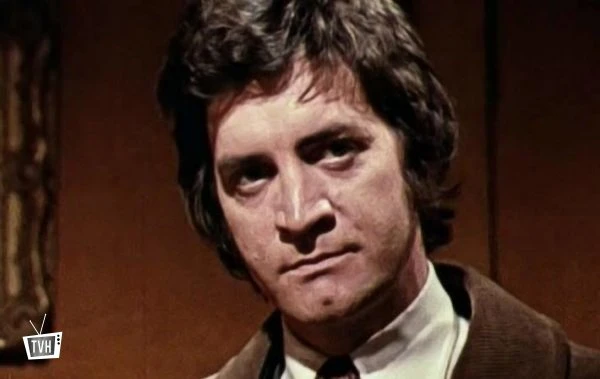
The really clever thing about 'If He Can, So Could I' is how it references what has gone before to build up a profile of a man under extreme stress. Early in the episode Snell lists a number of incidents we have seen in previous episodes. Since shows in the thriller genre at this time were highly episodic, viewers were used to regular characters facing huge physical and psychological challenges, and possibly taking a lot of punishment on both fronts, but being absolutely fine afterwards, ready for the next adventure same time next week.
In this respect, Callan was determined to be different. Indeed, from its very beginning, it is founded on the premise that the present is determined by the past, that scars do not heal in a week and some never go away. This was truly revolutionary. By the fourth season, it was a principle well illustrated by the main protagonist, but 'If He Can, So Could I' takes another revolutionary step by extending it to a supporting character.
It is significant that, even if both would deny it, Callan and Cross have much in common - hence the title of the episode. Callan's rivalry with Meres in the first two seasons was based on their differences, but Cross obviously wants to be Callan. It is the classic tale of the young lion wanting to replace the old lion and the old lion having no intention of being replaced. For all his ambition, Cross is no Callan and has been slapped down firmly when they clash. We know Callan can be a nasty bully, but we assume Cross is too insensitive for it to have much effect. We may have assumed wrong.
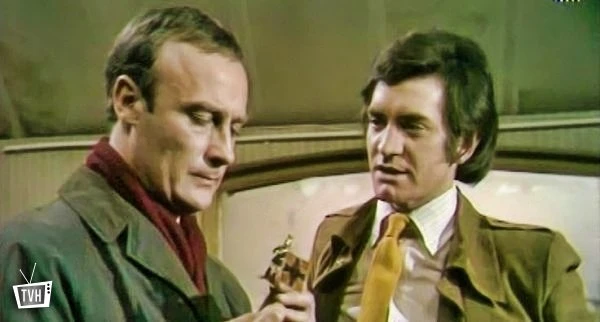
In the episode 'A Village Called G' Callan's humiliation of Cross in front of Liz ended their affair by forcing Cross to admit that he would choose his career over her. Callan had been studying chess and his ability to think several moves ahead in that case impressed the Fourth Hunter: indeed, that may have been the moment that Hunter, like the viewer, began thinking of Callan as a potential leader.
The incident must have hit Cross more than he let on. Previous episodes have also established that Cross fancies himself as a ladies man. Another incident, one of a number listed by Snell early in 'If He Can, So Could I,' must also have had a particular impact on Cross: he and Callan broke the engagement of an innocent translator to a man deemed a threat to national security - prompting her unexpected suicide. Callan, as usual, responded by losing his temper at the time, but Cross seems casual about it - perhaps too casual.
The last incident listed by Snell took place in 'Rules of the Game,' the episode immediately prior to 'If He Can, So Could I,' in which Cross, under intense pressure, subdued a teenage girl by hitting her, causing her serious injuries. Cross is offhand about this. Is he suppressing too much?

Snell insists that Cross be put through a series of tests similar to those Callan himself went through in 'Where Else Could I Go?' after his return at the start of the third season - except the technology and budgets have improved a bit. Cross looks mean and deadly, but his performance is ever so slightly below below par. Snell points out that this could be the difference between life and death in the field.
Callan is unconvinced, or perhaps is overprotective of Cross. Since he does not like Cross, is he feeling guilty about how he has treated him? Or does he see a lot of himself in Cross after all? Snell, who seems to be judging Callan as much as Cross, insists on a final test.
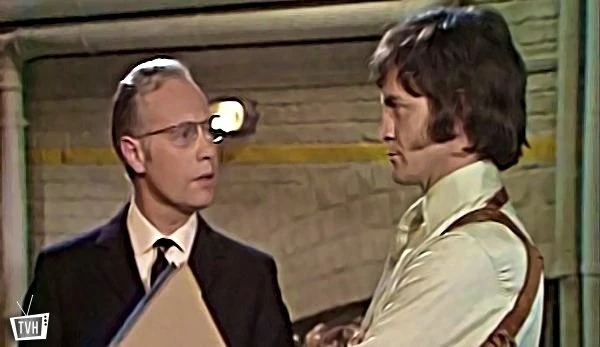
This is an unusually well staged and realistic martial arts duel - in which Mower holds his own quite convincingly against real life fight arranger and martial artist Alan Chuntz - going from polite judo to contact karate. Callan and Snell disagree about the meaning of the result. In the end, Bishop tells Callan the final decision is his and Callan chooses to overrule Snell's advice.
Is Callan doing this because he is supportive of Cross or because he feels he needs to assert his leadership in his new role? The ambiguity remains to the end.
There is certainly no doubt that he has difficulty viewing and treating his old colleagues from his new perspective, and getting them to view and treat him accordingly. He shouts a lot and tries his old bullying tactics, but that is not working: Meres, Cross, and Snell all scent weakness and are testing him. Meres needles him as if they were still equals, relying on old familiarity. Cross tries to do the same but cannot quite carry it off. Snell seems to treat everyone, including Callan, as his inferior anyway.
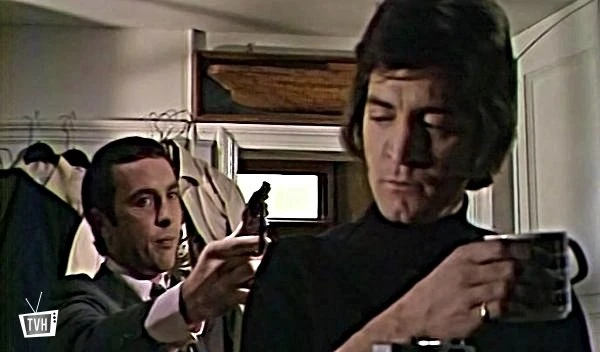
All this is conveyed quite exquisitely in some really subtle scenes, sometimes even moments. Indeed, there is so much about "the Section" that is reduced to tiny "blink and you miss them" interactions. We see that Meres does not think much of Cross, that Bishop is not sure he made the right decision with Callan, that Liz remains uncomfortable with Cross, and that everyone, except perhaps Bishop, dislikes Snell's company, perhaps out of fear.
All this is delivered with perfect precision. The acting in Callan was always of a high calibre, but the whole cast excels itself in 'If He Can, So Could I.' It really is an actor's piece to the point that the usual action adventure plot is almost a distraction. However, the plot is necessary for the character arcs to play themselves out. That is the way it should be and rarely is in television drama, where character tends to end up serving plot.
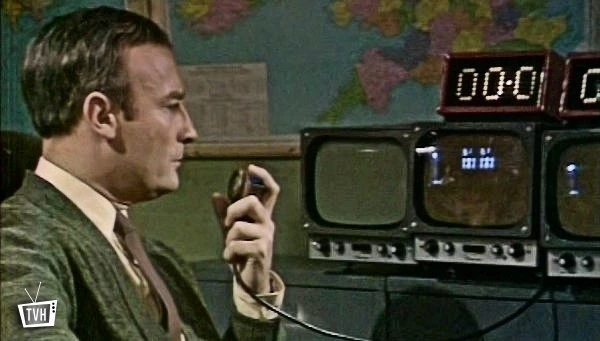
On the pretext that he is short of men, Callan assigns Cross the - relatively easy - task of acting as bodyguard to a pretentious Ukrainian poet, while Meres goes after the assassin sent to kill him. In another prescient moment, decades before Litvinenko and Skripal, it is explained that Moscow wants to show potential defectors at home that no one is beyond its reach.
Events play out as Snell predicted. Both Cross and Callan, in different ways, let their emotions get the better of them, forget their training, and fail in their respective obligations. The results are both tragic and shocking.
The situation is redeemed - Bishop under pressure reveals that there is far more to him than the stereotypical pompous fool we might have assumed, and Callan demonstrates that, whatever his failings, his "shop floor" skills remain undiminished - but there are consequences that play out in later episodes.
Meanwhile, Callan deals with his emotions by getting very drunk, in a strange coda scene, in which the closest thing he has to a friend, "Lonely," played by the wonderfully expressive Russell Hunter, becomes a rather confused, and slightly frightened, "Father Confessor" figure. Up until this point, the episode has been unusually "Lonely-lite," but we are now reminded of his importance to Callan. One cannot imagine Cross having anyone similar in his life.
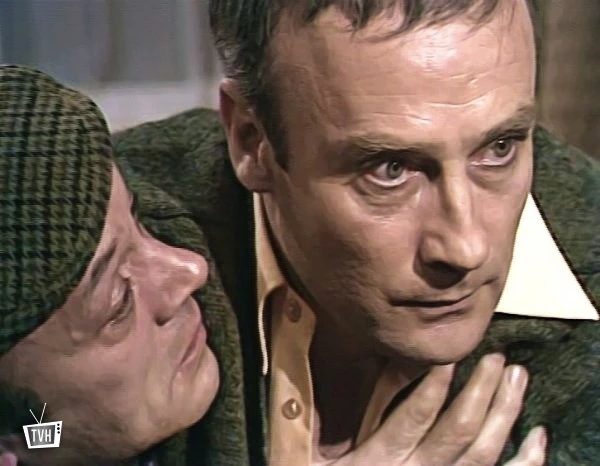
Lonely has every right to be frightened. Callan talks almost casually of atrocities in which he took part during the Malayan Emergency - in which some nasty things really did happen - and of the hardest man he ever met. He concludes that the purpose of the training is to suppress not normal human feeling as one might assume but the darkness he feels inside himself.
In the end, however, it is Snell who has the final word - and proves that he was infuriatingly right again. Snell wins the episode, and Rose wins its acting prize against very strong competition, but it is also arguably Patrick Mower's finest hour as an actor. For a season and a half, Cross was set up as a deliberately unsympathetic character, but the pay off is that in the end we find ourselves feeling surprisingly sorry for him.
It was a particularly intelligent and sophisticated episode of a particularly intelligent and sophisticated action show. Indeed, if there is a criticism it is that, apart from the judo and karate duel, the actual "action" scenes in the episode now look very poor.
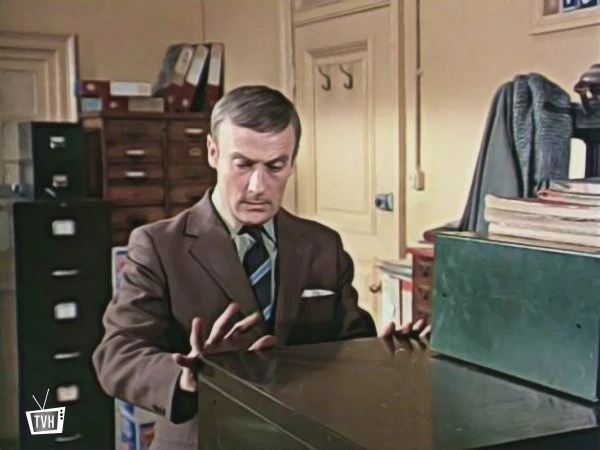
In its psychological depth, its use of long story and character arcs, and, above all, its political cynicism, Callan was decades ahead of its time. Yet if it was being remade now - please, no - the producers would insist on more action and less talk. That would be missing the point:
In Callan, the long talky bits were the real action scenes.
Published on December 15th, 2020. Written by John Winterson Richards for Television Heaven.




